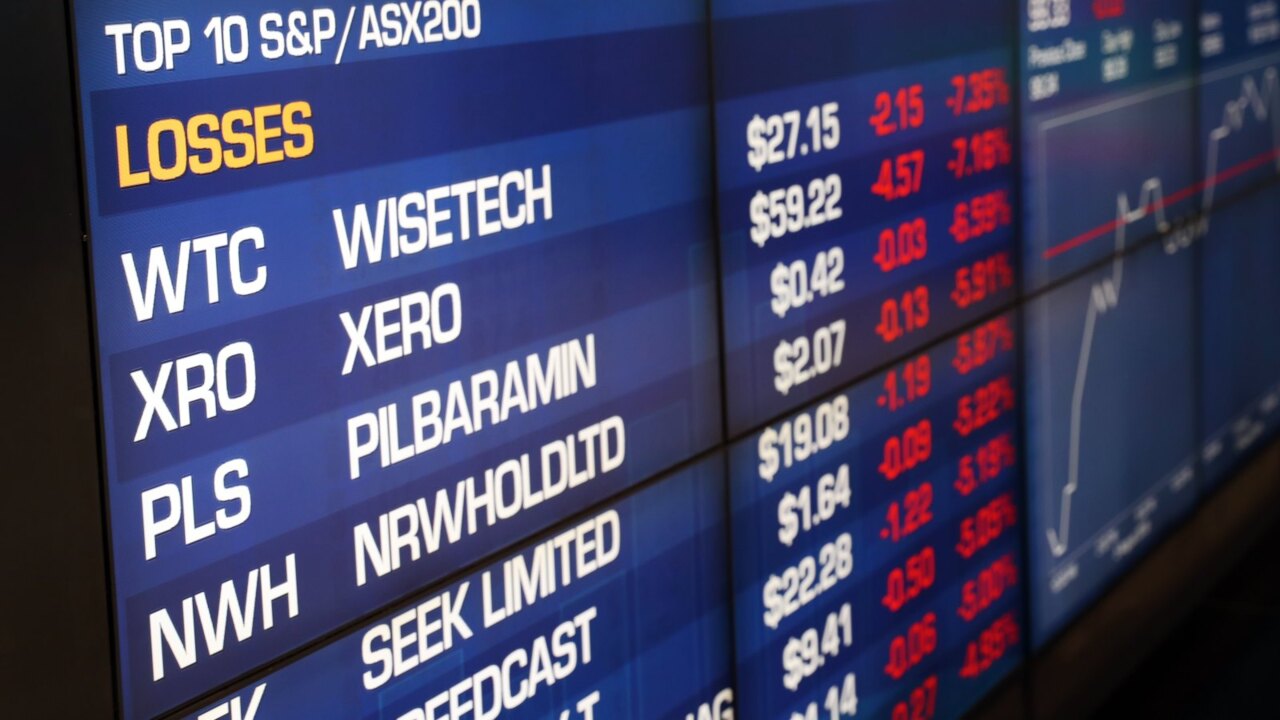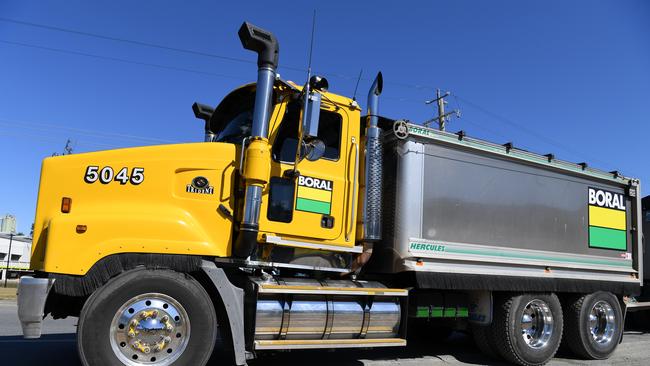Boral earnings slide amid rain, energy price spike
Boral expects a housing slump to ramp up next year as soaring energy costs mean it will slug building materials customers with the largest price jump in five years.

Boral expects a housing slump to accelerate in the second half of the financial year amid a downturn as soaring energy costs force it to slug building materials customers with the largest price jump in five years.
Boral’s outgoing chief executive Zlatko Todorcevski tipped the worst of the pain in the housing market would be in 2023 with building likely to slow amid anecdotal evidence of a decline in foot traffic through display homes.
“On a housing downturn, I think we’re all expecting that to happen based on feedback we’re getting from our detached housing builder customers,” Mr Todorcevski said after its annual earnings fell by a third to $107m due to wet weather and higher energy bills.
“Detached is likely to trail off in the second half of 2023. If you overlay what’s happening with interest rates and the really sharp increase we’re seeing in detached housing prices over the last 18 months, I think it is a sign it will probably start to soften.”
Business collapses in the construction industry has also underscored the risk of insolvencies, as soaring prices for labour and materials mount which the Boral chief said he was watching.
“I think it’s important to be prudent at the moment when you are seeing some builders go into administration or not being able to perform,” said Mr Todorcevski, noting it had built in a buffer against collapses.
“We monitor all the customers – whether they‘re detached housing builders or larger infrastructure builders – pretty closely. And I feel good about the position we are in today relative to some of the risks but I think it’s just an ongoing watch for us. Frankly, we don’t take that for granted.”
Boral accelerated by several months its annual material price increase to August 2022, its biggest in five years, in addition to the out-of-cycle increases set in January and February. It covers materials ranging from cement, aggregate and concrete along with lime which was forced to wear a big hit from high gas prices.
“These are some of the largest pricing increases by geography and by product line that we’ve put in the market over the last five years. And I think that’s appropriate. I think it’s reflective of the inflationary environment we’re facing,” Mr Todorcevski said.
Some customers on cheaper deals had baulked at the price rises but others had signed up for new supplies. Boral has also clamped down on discounts given to some buyers and said it now had to stick to the cost hike.
“There was a lot of discretion and a lot of authority within Boral given to relatively junior salespeople who were well intentioned and were trying to support their customers. We can‘t afford that,” Mr Todorcevski said.
“The worst thing we can do now is say we‘re going to increase prices and get wobbly knees when we see customers walk. We’re all holding hands singing Kumbaya at the moment because it’s unprecedented times in the industry. And what we’re focused on is holding prices and getting the realisations we need.”
JP Morgan said the continuation of cost inflation into 2023 was likely to see incremental downside to earnings estimates.
The Kerry Stokes-controlled Boral saw its annual earnings plummet amid construction lockdowns, wet weather and rising energy prices while forecasting higher revenue in 2023 as demand and prices pick up.
Earnings before interest and tax fall 32 per cent to $107m for the 12 months to June 30, in line with downgraded guidance handed down in May for a $100m-$110m result.
Sales revenue edged up 1 per cent to $2.95bn while a big gain from the sale of its North American business resulted in a statutory net profit of $961m.
Boral, chaired by Seven Group chief executive Ryan Stokes, was hit with a $58m jump in energy costs. Diesel prices rose 90 per cent and some wholesale gas prices were up six-fold. Part of its energy supply is exposed to the spot market although hedging programs in place limited the company’s overall exposure.

A big infrastructure pipeline is starting to deliver for the company with Boral working on the Western Sydney Airport, Sydney Metro West and Tonkin Gap in Western Australia.
Still, it warned of a high risk of “further adverse impacts” due to rainfall with July the wettest on record in Sydney.
The ex-Cleanaway and current Infrabuild boss Vik Bansal will take over as Boral CEO by December although Boral said it would not provide 2023 earnings guidance ahead of that time.
“I obviously didn’t feel it was appropriate to put quantitative guidance into the market, particularly with a CEO transition happening later in the year,” Mr Todorcevski said.
The Stokes family’s Seven Group took control of Boral last year, and under Mr Todorcevski had begun simplifying the business by selling down more than $4bn worth of North American assets, and cutting costs.
Boral offloaded the last of its American businesses in early December with the $1bn sale of its fly ash operations. That followed selling its larger US building products business – comprising roofing, stone and windows operations – to Westlake Chemical for $US2.15bn ($3.13bn).
Seven Group has been outspoken on the need for a leaner business with Boral noting 220 job losses resulting from a “organisational reset” in June would deliver annualised cost savings of $35m, including $24m in 2023.
Shares rose 7c to $2.96.




To join the conversation, please log in. Don't have an account? Register
Join the conversation, you are commenting as Logout